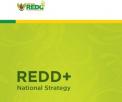- Home
- About
- Campaigns
- Regions
- Themes
- Agrofuels
- Climate justice
- Coastal communities and fisheries
- Disasters
- Economy & debt
- Energy
- Foreign investment
- Forests & forest fires
- Human rights
- Indigenous Peoples
- International Financial Institutions
- Land and food security
- Laws & regulations
- Mining, oil & gas
- Plantations
- Politics & democracy
- REDD
- Regional autonomy
- Transmigration
- Water and dams
- Women
- Publications
- Links
- Contact
Campaign
- Agrofuels and oil palm plantations (55)
- Climate Justice and sustainable livelihoods (52)
- Coal (37)
- MIFEE (14)
- BP - Tangguh (7)
Theme
- Agrofuels (58)
- Climate justice (101)
- Coastal communities and fisheries (38)
- Disasters (15)
- Economy & debt (82)
- Energy (73)
- Foreign investment (154)
- Forests & forest fires (204)
- Human rights (207)
- Indigenous Peoples (219)
- International Financial Institutions (62)
- Land and food security (150)
- Laws & regulations (168)
- Mining, oil & gas (131)
- Plantations (154)
- Politics & democracy (80)
- REDD (32)
- Regional autonomy (62)
- Transmigration (19)
- Water and dams (10)
- Women (40)
Publication
- Newsletter articles (340)
- Special reports & briefings (18)
- Books (3)
- Photos and videos (11)
- Workshop resources (1)
- Fact sheets and updates (16)
- Press releases & position papers (22)
- Letters (13)
Indonesia






